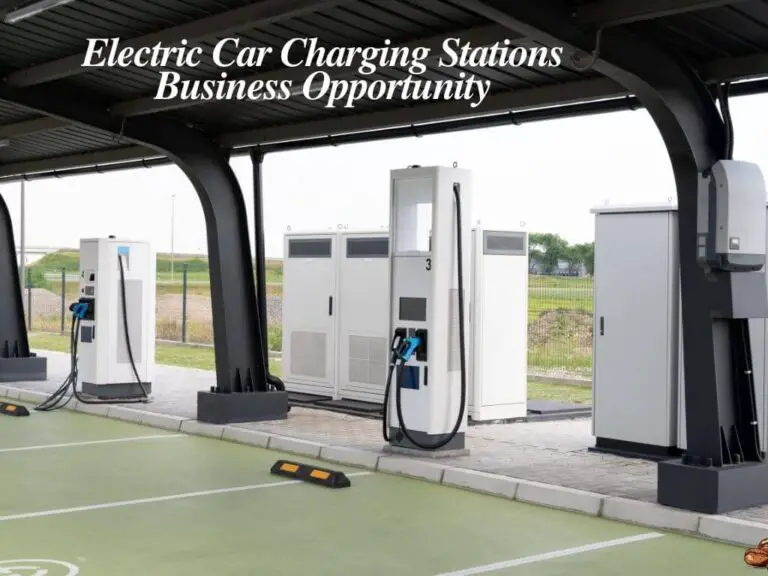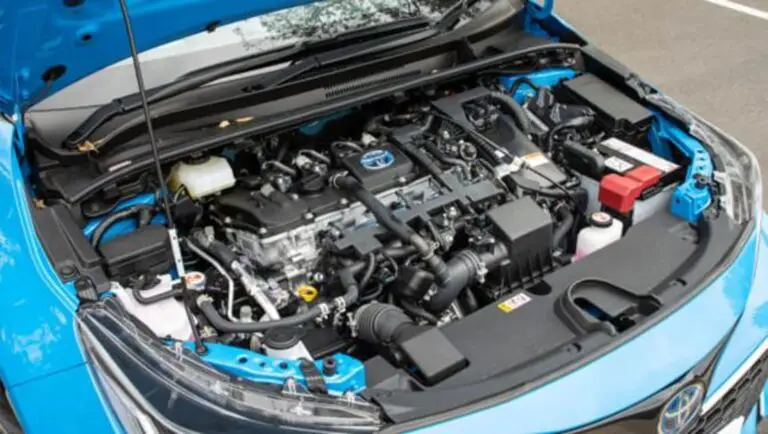Are electric vehicle batteries recyclable? This is a question that has been on many people’s minds lately, as electric car sales continue to grow. So, is it really possible to recycle electric car batteries? The short answer is yes – but there are a few things that you need to know first.
In this article, we’ll tell you all about the recycling process for electric vehicle batteries, and explain why it’s important that you take these steps if you want to help reduce pollution.
are electric vehicle batteries recyclable?
Yes, electric vehicle (EV) batteries are recyclable. EV batteries contain valuable materials such as lithium, cobalt, and nickel that can be recovered and reused in the production of new batteries or other products. The recycling process for EV batteries typically involves breaking down the battery into its component parts, extracting the valuable materials, and purifying them for reuse.
There are a number of companies that specialize in recycling EV batteries, and many automakers have established programs to collect and recycle their used batteries. Some EV batteries may also be refurbished and used in stationary energy storage systems, rather than being fully recycled.
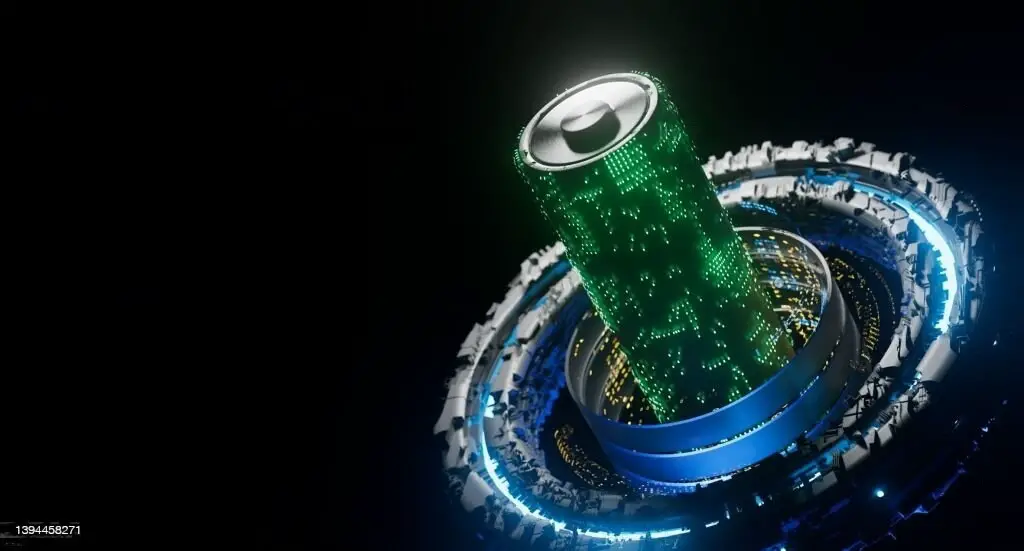
Why is it important to recycle EV batteries?
Recycling electric vehicle (EV) batteries is important for a number of reasons:
- Environmental sustainability: EV batteries contain valuable materials such as lithium, cobalt, and nickel, which can be recovered and reused in the production of new batteries or other products. Recycling these batteries helps to conserve natural resources and reduce the environmental impact of battery production. It also helps to reduce greenhouse gas emissions, as the energy required to extract and refine raw materials for use in new batteries is significantly higher than the energy required to recycle used batteries.
- Economic benefits: Recycling EV batteries can also help to reduce the cost of producing new batteries, making EVs more affordable. This is because recycled materials are often cheaper to source than raw materials, and the energy required to extract and process them is lower.
- Resource efficiency: Recycling used EV batteries can help to reduce the demand for raw materials and reduce the strain on the environment. It can also help to extend the life cycle of batteries and make better use of the resources that have already been invested in their production.
Overall, recycling EV batteries is an important part of the lifecycle of EVs and helps to ensure that they are as sustainable as possible.
What’s the valuable materials that can be recovered from EV batteries?
The valuable materials that can be recovered from electric vehicle (EV) batteries include:
- Lithium: Lithium is a light, silvery metal that is used in the production of batteries for a variety of applications, including EVs. It is a key component of lithium-ion batteries, which are commonly used in EVs.
- Cobalt: Cobalt is a hard, lustrous metal that is often used in the production of batteries and other high-performance alloys. It is an important component of many types of EV batteries.
- Nickel: Nickel is a silvery-white metal that is often used in the production of batteries and other alloys. It is also an important component of some types of EV batteries.
- Copper: Copper is a reddish metal that is used in a wide variety of applications, including the production of electrical wire and other conductive materials. It is often used in the production of EV batteries.
- Aluminum: Aluminum is a lightweight metal that is used in the production of a variety of products, including EV batteries. It is often used as a conductor in battery cells.
These materials can be recovered from used EV batteries through the recycling process and reused in the production of new batteries or other products. Recycling these materials helps to conserve natural resources and reduce the environmental impact of battery production.
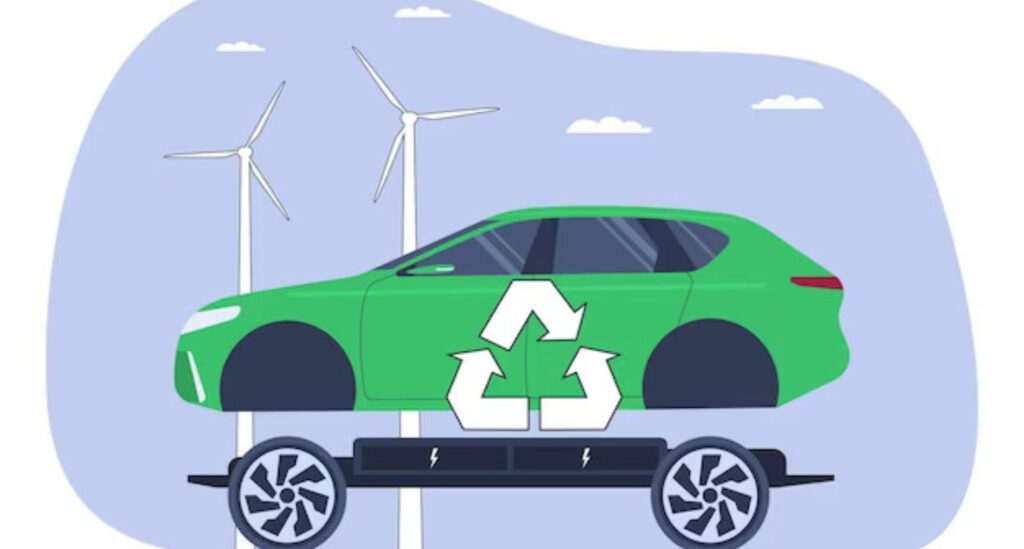
Whats the recycling process for EV batteries?
The recycling process for electric vehicle (EV) batteries typically involves the following steps:
- Collection: Used EV batteries are collected from automakers, dealerships, and other sources. They may be collected through programs established by automakers or by recycling companies that specialize in EV batteries.
- Transportation: The collected batteries are transported to a recycling facility, where they will be processed.
- Disassembly: The first step in the recycling process is to disassemble the battery, separating it into its component parts. This may involve breaking down the battery into its individual cells and removing any external components such as connectors and wiring.
- Sorting: The individual cells and components are sorted into different materials, such as lithium, cobalt, and nickel.
- Extraction: The valuable materials are extracted from the cells and components through a process called pyrometallurgy. This involves heating the materials to high temperatures in order to separate them.
- Purification: The extracted materials are purified to remove any impurities and contaminants.
- Reuse: The purified materials are then reused in the production of new batteries or other products.
Overall, the recycling process for EV batteries is designed to recover as much of the valuable materials as possible and prepare them for reuse. It helps to conserve natural resources and reduce the environmental impact of battery production.
How the valuable materials are extracted and purified for reuse?
The valuable materials in electric vehicle (EV) batteries are extracted and purified through a process called pyrometallurgy. This involves heating the materials to high temperatures in order to separate them.
The specific steps involved in extracting and purifying the valuable materials from EV batteries depend on the type of battery and the materials being extracted. In general, the process may involve the following steps:
- Crushing: The battery cells are crushed into small pieces to make it easier to extract the valuable materials.
- Roasting: The crushed material is roasted at high temperatures, which helps to separate the valuable materials from the other components of the battery.
- Leaching: The roasted material is treated with a chemical solution to extract the valuable materials. This process is called leaching.
- Precipitation: The solution containing the extracted materials is treated with another chemical to cause the valuable materials to precipitate out of the solution.
- Purification: The precipitated materials are purified to remove any impurities and contaminants. This may involve further chemical treatment or other processes.
Once the valuable materials have been extracted and purified, they are ready to be reused in the production of new batteries or other products. The specific methods used to extract and purify the materials will depend on the type of battery and the materials being extracted.
Mention any challenges or issues that may arise during the recycling process.
There are a number of challenges and issues that may arise during the recycling process for electric vehicle (EV) batteries:
- Cost: Recycling EV batteries can be expensive, as it requires specialized equipment and processes. This can make it difficult for recyclers to compete with the lower cost of producing new batteries from raw materials.
- Limited recycling capacity: There is currently limited recycling capacity for EV batteries, which can lead to a backlog of used batteries that need to be recycled. This can create challenges for automakers and other organizations that are responsible for collecting and recycling used batteries.
- Health and safety concerns: The recycling process for EV batteries involves the handling and processing of hazardous materials, which can pose health and safety risks to workers. Proper protective equipment and safety protocols must be in place to ensure the safety of workers.
- Environmental impacts: The recycling process for EV batteries may also have environmental impacts, such as the release of pollutants into the air or water. Recycling facilities must be designed and operated in a way that minimizes these impacts.
Overall, these challenges and issues can make it difficult to efficiently and effectively recycle EV batteries. However, advances in technology and the development of more efficient and sustainable recycling processes can help to overcome these challenges and make the recycling of EV batteries more viable.
The role of automakers and recycling companies:
Here we discuss the rule of automakers companies and their process.
Collecting and recycling used EV batteries-
Automakers play an important role in collecting and recycling used electric vehicle (EV) batteries. Many automakers have established programs to collect used batteries from their customers and recycle them in an environmentally responsible manner. These programs may involve partnering with specialized recycling companies or operating their own recycling facilities.
By collecting and recycling used EV batteries, automakers can help to reduce the environmental impact of battery production and extend the life cycle of batteries. This can help to make EVs more sustainable and reduce the cost of producing new batteries.
In addition to collecting and recycling used batteries, automakers may also invest in research and development to improve the recycling process and increase the amount of valuable materials that can be recovered from used batteries. This can help to make the recycling of EV batteries more efficient and cost-effective.
Overall, the role of automakers in collecting and recycling used EV batteries is an important part of the lifecycle of EVs and helps to ensure that they are as sustainable as possible.
Which companies that specialize in recycling EV batteries?
There are a number of companies that specialize in recycling electric vehicle (EV) batteries. Here are a few examples:
- Umicore: Umicore is a Belgian company that specializes in the recycling of EV batteries and other electronic waste. They operate recycling facilities in Europe, Asia, and the Americas, and have developed advanced technologies for the recycling of lithium-ion batteries.
- Retriev Technologies: Retriev Technologies is a U.S.-based company that specializes in the recycling of EV batteries and other types of batteries. They operate a state-of-the-art recycling facility in Ohio and have developed a proprietary recycling process that allows them to recover a high percentage of the valuable materials from used batteries.
- Battery Solutions: Battery Solutions is a U.S.-based company that specializes in the recycling of a wide variety of batteries, including EV batteries. They operate a number of recycling facilities across the United States and have developed innovative technologies for the recycling of lithium-ion batteries.
- Raw Materials Company: Raw Materials Company is a Danish company that specializes in the recycling of EV batteries and other types of batteries. They operate a number of recycling facilities in Europe and have developed advanced technologies for the recycling of lithium-ion batteries.
These are just a few examples of the many companies that specialize in recycling EV batteries. There are many other companies operating in this space, and the field is constantly evolving as new technologies and processes are developed.
How these companies contribute to the sustainability of EVs.
Companies that specialize in recycling electric vehicle (EV) batteries contribute to the sustainability of EVs in a number of ways:
- Resource conservation: By recycling used EV batteries, these companies help to conserve natural resources such as lithium, cobalt, and nickel. These materials are extracted from the earth through mining, which can have significant environmental impacts. By recycling used batteries, these companies help to reduce the demand for new raw materials and make better use of the resources that have already been invested in their production.
- Greenhouse gas reduction: Recycling EV batteries also helps to reduce greenhouse gas emissions. The energy required to extract and refine raw materials for use in new batteries is significantly higher than the energy required to recycle used batteries. By recycling used batteries, these companies can help to reduce the carbon footprint of battery production.
- Cost reduction: Recycling EV batteries can also help to reduce the cost of producing new batteries, making EVs more affordable. This is because recycled materials are often cheaper to source than raw materials, and the energy required to extract and process them is lower. By reducing the cost of producing new batteries, these companies can help to make EVs more accessible to a wider range of consumers.
Overall, companies that specialize in recycling EV batteries play a key role in the sustainability of EVs by conserving natural resources, reducing greenhouse gas emissions, and reducing the cost of producing new batteries.
The benefits of recycling EV batteries
There are a number of benefits to recycling electric vehicle (EV) batteries. Recycling starts with recovering materials from old battery packs and ends up creating new, working batteries that can be used again by the public. Byproducts from recycling EV batteries include metals, plastics and insulation material.
Here we discuss two type of benefits.
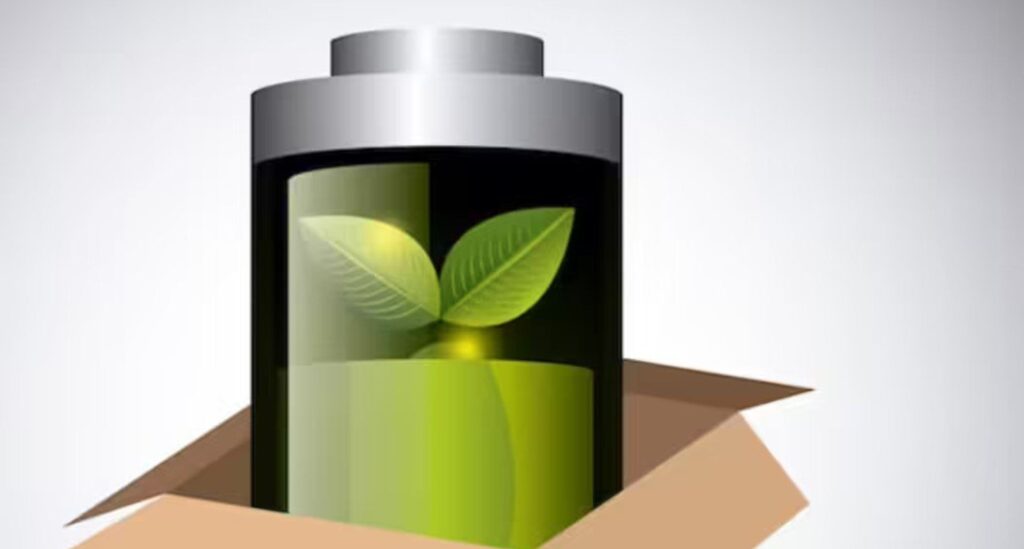
What’s the environmental benefits of recycling EV batteries?
There are a number of environmental benefits to recycling electric vehicle (EV) batteries:
- Resource conservation: Recycling EV batteries helps to conserve natural resources such as lithium, cobalt, and nickel, which are used in the production of batteries. These materials are extracted from the earth through mining, which can have significant environmental impacts. By recycling used batteries, we can reduce the demand for new raw materials and make better use of the resources that have already been invested in their production.
- Greenhouse gas reduction: Recycling EV batteries also helps to reduce greenhouse gas emissions. The energy required to extract and refine raw materials for use in new batteries is significantly higher than the energy required to recycle used batteries. By recycling used batteries, we can help to reduce the carbon footprint of battery production.
- Waste reduction: Recycling EV batteries helps to reduce the amount of waste that is sent to landfills. Used batteries can take up significant space in landfills and may release hazardous substances into the environment. By recycling used batteries, we can help to reduce the environmental impacts of waste disposal.
Overall, recycling EV batteries is an important way to conserve natural resources, reduce greenhouse gas emissions, and reduce the environmental impact of waste disposal. It is an important part of the lifecycle of EVs and helps to ensure that they are as sustainable as possible.
What’s the economic benefits of recycling?
There are a number of economic benefits to recycling:
- Cost reduction: Recycling can help to reduce the cost of producing new products by providing a source of recycled materials that are cheaper to source than raw materials. This is because the energy required to extract and process recycled materials is typically lower than the energy required to extract and process raw materials. For example, recycling aluminum cans requires 95% less energy than producing aluminum from raw materials. Similarly, recycling steel requires 74% less energy than producing steel from raw materials.
- Job creation: Recycling can also create jobs in the recycling industry and related sectors. These jobs may involve collecting, sorting, and processing recycled materials, as well as manufacturing products using recycled materials. This can help to stimulate economic growth and support local communities.
- Resource efficiency: Recycling can help to extend the life cycle of products and make better use of the resources that have already been invested in their production. This can help to reduce the overall cost of production and improve the efficiency of resource use. For example, recycling paper saves trees and reduces the amount of water, energy, and chemicals needed to produce new paper. Similarly, recycling plastic reduces the need for new plastic, which is made from non-renewable resources such as oil and natural gas.
Overall, recycling can have a number of economic benefits, including cost reduction, job creation, and resource efficiency. These benefits can help to stimulate economic growth and make products more affordable for consumers.
FAQs-
Q1: Can EV batteries be completely recycled?
Yes, electric vehicle (EV) batteries may be recycled fully. The components of EV batteries, such as lithium, cobalt, and nickel, may be removed and reused using modern recycling methods. Recycling not only eliminates waste but also aids in the recovery of precious materials for the manufacture of new batteries, so contributing to a more sustainable and circular economy.
Q2: Are Tesla EV batteries recyclable?
Tesla EV batteries are, in fact, recyclable. Tesla has formed agreements and recycling systems for their electric vehicle batteries. Valuable components such as lithium, cobalt, and nickel may be recovered from batteries and utilized in the creation of new batteries using specialized recycling procedures. Tesla’s dedication to sustainability extends to battery end-of-life management, assuring a closed-loop recycling system that reduces waste and environmental impact.
Q3: Why EV battery recycling?
Recycling EV batteries is critical for various reasons. For starters, it aids in the recovery of important elements like as lithium, cobalt, and nickel, lowering reliance on mining for these resources. Second, it reduces environmental effect by eliminating hazardous battery waste disposal. Third, recycling fosters a circular economy by reusing and reintegrating materials into fresh battery manufacture, minimizing the demand for raw material extraction. Finally, it helps to increase the overall sustainability of electric cars, making them a more ecologically benign mode of transportation.
Conclusion
Overall, EV batteries are not different from regular batteries in the sense that they can be recycled. However, due to their unique properties, recycling them often requires special equipment since some materials need to be separated efficiently.
Recycling EV batteries is an important step towards protecting our environment and reusing valuable resources while also creating job opportunities for people who have been left out of the economic recovery process.

